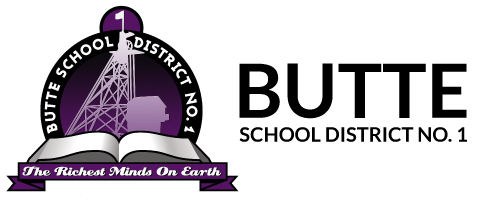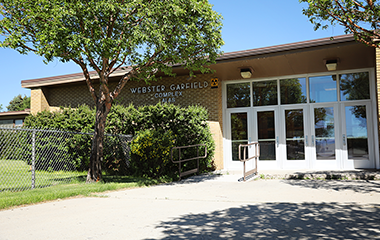Butte School District
THE BOARD OF TRUSTEES
5012P
Sexual Harassment Grievance Procedure - Employees
The Board adopts the following grievance procedure to be followed for the prompt and equitable resolution of employee complaints alleging any action that is prohibited as sexual harassment by Title IX. The procedure is to be published in accordance with all statutory and regulatory requirements.
Definitions
The following definitions apply for Title IX policies and procedures:
“Actual knowledge:” actual notice of sexual harassment or actual notice of allegations of sexual harassment made in writing to the District’s Title IX Coordinator or any official of the District who has authority to institute corrective measures on behalf of the District.
“Education program or activity:” includes locations, events or circumstances over which the District has the ability to exercise substantial control over both the individual who has been reported to be the perpetrator of conduct that could constitute sexual harassment, and the context in which the sexual harassment occurs.
“Complainant:” an individual who files a complaint wherein he/she allege they were the victim of conduct that could constitute sexual harassment.
“Respondent:” an individual who is alleged to be the perpetrator of conduct that could constitute sexual harassment.
“Formal complaint:” a written document filed by a Complainant alleging sexual harassment against a Respondent and requesting that the District investigate the allegation of sexual harassment.
“Supportive measures:” non-disciplinary, non-punitive individualized professional services offered where appropriate, as reasonably available and without fee or charge to the Complainant or Respondent after the filing of a formal complaint.
District Requirements
When the District has actual knowledge of alleged sexual harassment in an education program or activity of the District, the District will respond promptly in a manner that is appropriate for the situation. When the alleged harassment or discrimination does not meet the technical definition of sexual harassment, the Title IX Coordinator will guide the complainant to the applicable procedure to be followed.
The District treats individuals who are alleged to be the victim (Complainant) and perpetrator (Respondent) of conduct that could constitute sexual harassment equitably by, when appropriate, offering supportive measures. Supportive measures are designed to restore or preserve equal access to the District’s education program or activity without unreasonably burdening the other party, including, measures designed to protect the safety of all parties or the District’s educational environment, or deter sexual harassment. Supportive measures may include counseling, extensions of deadlines or other course-related adjustments, modifications of work or class schedules, mutual restrictions on contact between the parties, paid or unpaid leave of absence, increased security and monitoring of certain areas of the District’s property, campus escort services, changes in work locations and other similar measures.
The Title IX Coordinator is responsible for coordinating the effective implementation of supportive measures. Upon the receipt of a complaint, the Title IX Coordinator must promptly contact the Complainant to discuss the availability of supportive measures, consider the Complainant’s wishes with respect to supportive measures, inform the Complainant of the availability of supportive measures with or without the filing of a formal complaint, and explain to the Complainant the process for filing a formal complaint. If the District does not provide the Complainant with supportive measures, then the District must document the reasons why such action is reasonable in light of the known circumstances.
Timelines
The District has established reasonably prompt time frames for the conclusion of the grievance process, including time frames for filing and resolving appeals and informal resolution processes. The grievance process may be temporarily delayed or extended for good cause. Good cause may include considerations such as the absence of a party, a party’s advisor, or a witness; concurrent law enforcement activity; or the need for language assistance or accommodation of disabilities. In the event the grievance process is temporarily delayed for good cause, the District will provide written notice to the Complainant and the Respondent of the delay or extension and the reasons for the delay or extension.
Response to a Formal Complaint
At the time of filing a formal complaint, a Complainant must be participating in or attempting to participate in the education program or activity of the District which is the focus of the formal complaint. A formal complaint may be filed with the Title IX Coordinator in person, by mail, by electronic mail, or other means designated by the District.
The District must follow the formal complaint process before the imposition of any disciplinary sanctions or other actions that are not supportive measures. However, nothing in this policy precludes the District from placing a non-student employee Respondent on administrative leave with or without pay during the pendency of the grievance process. The District may also remove a student Respondent alleged to have harassed an employee Complainant from the education setting. The student may receive instruction in an offsite capacity during the period of removal. This provision may not be construed to modify any rights under the Individuals with Disabilities Education Act, Section 504 of the Rehabilitation Act of 1973, or the Americans with Disabilities Act.
Upon receipt of a formal complaint, the District must provide written notice to the Respondent which includes:
- Notice of the allegations of sexual harassment, including information about the identity of the Complainant, the conduct allegedly constituting sexual harassment, the date and location of the alleged incident, and sufficient details known at the time to allow an investigation and/or response from the Respondent. Such notice must be provided with sufficient time to prepare a response before any initial interview;
- An explanation of the District’s investigation procedures, including any informal resolution process;
- A statement that the Respondent is presumed not responsible for the alleged conduct and that a determination regarding responsibility will be made by the decision-maker at the conclusion of the investigation;
- Notice to the Complainant and Respondent that they may, at their expense, have an advisor of their choice who may be, but is not required to be, an attorney, and may inspect and review any evidence; and
- Notice to the Respondent of any provision in the District’s code of conduct or policy that prohibits knowingly making false statements or knowingly submitting false information.
If, in the course of an investigation, the District decides to investigate allegations about the Respondent that are not included in the notice initially provided, notice of the additional allegations must be provided to the Respondent in a timely manner.
The District may consolidate formal complaints as to allegations of sexual harassment against more than one Respondent, or by more than one Complainant against one or more Respondents, or by one party against the other party, where the allegations of sexual harassment arise out of the same facts or circumstances.
Investigation of a Formal Complaint
When investigating a formal complaint and throughout the grievance process, the District must:
- Ensure that the burden of proof and the burden of gathering evidence sufficient to reach a determination regarding responsibility, rests on the District with the cooperation of Complainant and Respondent;
- Provide an equal opportunity for the parties to identify witnesses and evidence;
- Not restrict either party’s ability to identify or present relevant evidence;
- Allow the parties to be accompanied by an advisor of the party’s choice who may be, but is not required to be, an attorney. The District may establish restrictions regarding the extent to which the advisor may participate in the proceedings, as long as the restrictions apply equally to both parties;
- Provide written notice of the date, time, location, participants, and purpose of any interview or meeting at which a party is expected to participate, with sufficient time for the party to prepare to participate;
- Provide the parties equal access to review all the evidence collected which is directly related to the allegations raised in a formal complaint and comply with the review periods outlined in this process;
- Objectively evaluate all relevant evidence;
- Ensure that Title IX Coordinators, investigators, decision-makers and individuals who facilitate the resolution process, do not have a conflict of interest or bias for or against Complainants or Respondents generally or an individual Complainant or Respondent;
- Not make creditability determinations based simply on the individual’s status as Complainant, Respondent or witness;
- Not use questions or evidence that constitute or seek disclosure of privileged information unless waived.
Dismissal of Formal Complaints
If the conduct alleged in the formal complaint would not constitute sexual harassment even if proved, did not occur in the District’s education program or activity, or did not occur against a person in the United States, then the District must dismiss the formal complaint with regard to that conduct for purposes of sexual harassment under this policy.
The Title IX Coordinator also may dismiss the formal complaint or any allegations therein at any time during the investigation or hearing, if applicable, when any of the following apply:
- a Complainant provides written notification to the Title IX Coordinator that the Complainant would like to withdraw the formal complaint or any allegations therein;
- the Respondent is no longer enrolled or employed by the District; or
- specific circumstances prevent the District from gathering evidence sufficient to reach a determination as to the formal complaint or allegations therein.
Upon dismissal, the Title IX Coordinator promptly sends written notice of the dismissal and the reasons for dismissal simultaneously to both parties.
Evidence Review
The District must provide both parties an equal opportunity to inspect and review any evidence obtained as part of the investigation so that each party can meaningfully respond to the evidence prior to the conclusion of the investigation. The evidence provided by the District must include evidence obtained by the District that is directly related to the allegations in the formal complaint, and any inculpatory or exculpatory evidence whether obtained from a party or other source. Prior to completion of the investigative report, the Title IX Coordinator must send to each party and the party’s advisor, if any, the evidence subject to inspection and review in an electronic format or a hard copy. The parties have 10 calendar days to submit a written response to the Title IX Coordinator, which the investigator will consider prior to completion of the investigative report.
Investigative Report
The investigator/Title IX Coordinator must prepare an investigative report that fairly summarizes relevant evidence and send the report to the Superintendent. The Title IX Coordinator must send to each party and the party’s advisor, if any, the investigative report in an electronic format or a hard copy, for their review and written response. The parties have 10 calendar days to submit a written response to the Title IX Coordinator.
Decision-Maker’s Determination
The investigative report and any response from the parties is to be submitted to the Superintendent. The Superintendent cannot be a part of the investigation, unless as a witness. The decision-maker cannot hold a hearing or make a determination regarding responsibility until 10 calendar days from the date the Complainant and Respondent receive the investigator’s report.
Prior to reaching a determination regarding responsibility, the decision-maker/Superintendent must afford each party the opportunity to submit written, a very limited number of relevant questions (no more than 4 with no subparts) that a party wants asked of any party or witness, provide each party with the answers, and allow for additional, limited follow-up questions from each party. Questions and evidence about the Complainant’s sexual predisposition or prior sexual behavior are not relevant, unless such questions and evidence about the Complainant’s prior sexual behavior are offered to prove that someone other than the Respondent committed the conduct alleged by the Complainant, or if the questions and evidence concern specific incidents of the Complainant’s prior sexual behavior with respect to the Respondent and are offered to prove consent. Questions must be submitted to the Title IX Coordinator within three calendar days from the date the Complainant and Respondent receive the investigator’s report. Late arriving questions will be ignored.
The decision-maker must issue a written determination regarding responsibility based on a preponderance of the evidence standard. The decision-maker’s written determination must:
- Identify the allegations potentially constituting sexual harassment;
- Describe the procedural steps taken, including any notifications to the parties, interviews with parties and witnesses, site visits, methods used to gather evidence, and hearings held;
- Include findings of fact supporting the determination;
- Draw conclusions regarding the application of any District policies and/or code of conduct rules to the facts;
- Address each allegation and a resolution of the complaint including a determination regarding responsibility, the rationale therefor, any recommended disciplinary sanction(s) imposed on the Respondent, and whether remedies designed to restore or preserve access to the educational program or activity will be provided by the District to the Complainant; and
- The procedures and permissible grounds for the Complainant and/or Respondent to appeal the determination.
A copy of the written determination must be provided to both parties simultaneously, and generally will, if practical, be provided within 60 calendar days from the District’s receipt of a formal complaint, with additional time for any party delays.
The determination regarding responsibility becomes final either: i) on the date that the District provides the parties with the written determination of the result of the appeal, if an appeal is filed; or ii) if an appeal is not filed, the date on which an appeal would no longer be considered timely.
Where a determination of responsibility for sexual harassment has been made against the Respondent, the District will provide non-monetary remedies to the Complainant that are designed to restore or preserve equal access to the District’s education program or activity. Such remedies may include supportive measures; however, remedies need not be non-disciplinary or non-punitive and need not avoid burdening the Respondent. The Title IX Coordinator is responsible for effective implementation of any remedies. Following any determination of responsibility, the District may implement disciplinary sanctions in accordance with State or Federal law and or/the negotiated agreement. For employees, the sanctions may include any form of responsive discipline, up to and including termination.
Appeals
Either the Complainant or Respondent may appeal the decision-maker’s determination regarding responsibility or a dismissal of a formal complaint, only on the following grounds:
- Procedural irregularity that affected the outcome of the matter;
- New evidence that was not reasonably available during the investigation that would have affected the outcome; and
- The Title IX Coordinator, investigator, or decision-maker is shown to have had a conflict of interest or bias for or against Complainants or Respondents generally or an individual Complainant or Respondent that affected the outcome.
The request to appeal must be made in writing to the Title IX Coordinator within seven calendar days after the date of the written determination. The appeal decision-maker is the Board of Trustees of Butte School District No. 1 (Board of Trustees), who must not have a conflict of interest or bias for or against Complainants or Respondents generally or an individual Complainant or Respondent and cannot be the Title IX Coordinator, the investigator, or the decision-maker from the original determination.
The Board of Trustees must notify the other party in writing when an appeal is filed and give both parties a reasonable equal opportunity to submit a written statement in support of, or challenging, the outcome. After reviewing the evidence and the written statement, the Board of Trustees must issue a written decision either affirming or reversing the previous decision. The decision must be provided to both parties simultaneously, and generally will be provided within 10 calendar days from the date the appeal is filed.
Informal Resolution Process
Except when allegations are made that an employee sexually harassed a student, at any time during the formal complaint process and prior to reaching a determination regarding responsibility, the District may offer an informal resolution process, such as mediation, that does not involve a full investigation and determination of responsibility, provided that the District:
- Provides to the parties a written notice disclosing:
- The allegations;
- The informal resolution process proposed, including the circumstances under which it precludes the parties from resuming a formal complaint arising from the same allegations, provided, however, that at any time prior to agreeing to a resolution, any party has the right to withdraw from the informal resolution process and resume the Title IX formal complaint process with respect to the formal complaint; and
- Any consequences resulting from participating in the informal resolution process, including the records that will be maintained or could be shared.
- Obtains the parties’ voluntary, written consent to the informal resolution process.
The informal resolution process generally will be completed within 30 calendar days after written consent is received, unless the parties and the Title IX Coordinator mutually agree to temporarily delay or extend the process. The formal grievance process timelines are stayed during the parties’ participation in the informal resolution process. If the parties do not reach resolution through the informal resolution process, the parties will resume the formal complaint grievance process, including new timelines for resolution, at the point they left off.
Recordkeeping
The District must maintain, for a period of seven years, all records of:
- Each sexual harassment investigation, including any determination regarding responsibility, any disciplinary sanctions imposed on the Respondent, and any remedies provided to the Complainant designed to restore or preserve equal access to the District’s education program or activity;
- Any appeal and the result therefrom;
- Any informal resolution and the result therefrom; and
- All materials used to train Title IX Coordinators, investigators, decision-makers, and any person who facilitates an informal resolution process. The District must make these training materials publicly available on its website.
The District must create, and maintain for a period of seven years, records of any actions, including any supportive measures, taken in response to a report or formal complaint of sexual harassment. In each instance, the District must document the basis for its conclusion that its response was not deliberately indifferent, and document that it has taken measures designed to restore or preserve equal access to the District’s education program or activity.
Cross Reference:
Policy History:
- 5000 - Board Goal/Personnel
- 5002 - Accommodating Individuals with Disabilities
- 5010 - Equal Employment Opportunity & Non-Discrimination
- 5012 - Sexual Harassment/Sexual Intimidation in the Workplace (opens in new window)
- 5012-F Sexual Harassment Reporting Form for Employees (opens in new window)
- 5012P Sexual Harassment Grievance Procedure - Employees
- 5015 - Bullying/Harassment/Intimidation
- 5015F Harrassment Reporting Form for Employees (opens in new window)
- 5120 - Hiring Process & Criteria
- 5120 F-1 Fingerprint Declaration (opens in new window)
- 5120 F-2 Determination of Eligibility for Hire or Assignment (opens in new window)
- 5120 F-3 Privacy Act Statement Proposed (opens in new window)
- 5120 F-4 Incident Response Form (opens in new window)
- 5120 F-5 Re-dissemination to individual (opens in new window)
- 5120 P Hiring Process and Criteria - Federal Background Check Fingerprints and Information Handling Procedure
- 5121 - Applicability of Personnel Policies
- 5122 - Fingerprints and Criminal Background Investigations
- 5122 F-1 - Consent to Fingerprint (opens in new window)
- 5122 F-2 - Fingerprint Declaration (opens in new window)
- NCPA VCA (opens in new window)
- 5122 F-4 Determination of Eligibility for Hire/Assignment (opens in new window)
- 5122 F-5 Privacy Act Statement (opens in new window)
- 5122 F-6 Dissemination Log (opens in new window)
- 5122 F-7 Determination of Eligibility for Hire Log (opens in new window)
- 5122 F-8 Notice of Federal Background Check Determination (opens in new window)
- 5122 F-9 Re-Dissemination of Criminal History to the Individual (opens in new window)
- 5122 F-10 Incident Response Form (opens in new window)
- 5122P - Fingerprinting
- 5125 - Whistle Blowing and Retaliation
- 5130 - Staff Health
- 5140 - Classified Employment & Assignment
- 5210 - Assignments, Reassignments & Transfers
- 5213 - Vacancies
- 5220 - Prohibition on Aiding Sexual Abuse
- 5221 - Work Day
- 5222 - Evaluation of Staff
- 5223 - Personal Conduct
- 5224 - Political Activity - Staff Participation
- 5225 - Tobacco Free Policy
- 5226 - Drug-Free Workplace
- 5228 - Drug & Alcohol Testing for School Bus & Commercial Vehicle Drivers
- 5228P - Drug & Alcohol Testing for School Bus & Commercial Vehicle Drivers Continued
- 5230 - Prevention of Disease Transmission
- 5230P - Prevention of Disease Transmission Continued
- 5231 - Personnel Records
- 5231P - Personnel Records Continued
- 5232 - Abused & Neglected Child Reporting
- 5232F - Report of Suspected Child Abuse or Neglect
- 5251 - Resignations
- 5252 - Notice of nonrenewal of Nontenured Teacher for Financial Reasons
- 5253 - Retirement Programs for Employees
- 5255 - Disciplinary Action
- 5256 - Reduction in Force
- 5302 - Classified Staff Evaluation
- 5302P - Classified Staff Evaluation Continued
- 5302F-1 - Classified Staff Evaluation Form
- 5303 - Staff Evaluation
- 5303P - Staff Evaluation Continued (opens in new window)
- 5304 Evaluation of Non-Tenured Certified Staff
- 5304P Evaluation of Non-Tenured Certified Staff Continued (opens in new window)
- 5305F-1 - Individual Teacher Growth Plan
- 5314 - Substitutes
- 5321 - Leaves of Absence
- 5321P - Conditions for Use of Leave
- 5322 - Military Leave
- 5325 - Breastfeeding Workplace
- 5328 - Family Medical Leave
- 5328P - Family Medical Leave
- 5329 - Long-Term Illness/Temporary Disability/Maternity Leave
- 5329P - Long-Term Illness/Temporary Disability/Maternity Leave
- 5331 - Insurance Benefits for Employers
- 5333 - Holidays
- 5334 - Vacations
- 5334P - Vacations Continued
- 5337 - Workers' Compensation Benefits
- 5420 - Monitors/Paraeducators
- 5430 - Volunteers
- 5430F-1 - Volunteers Information & Authorization Form (opens in new window)
- 5430F-2 - Volunteers Authorization & Information Form (opens in new window)
- 5430F-3 - Chaperone Letter of Understanding (opens in new window)
- 5430F-4 - Volunteer/Chaperone Application (opens in new window)
- 5430F-5 Confidentiality Agreement (opens in new window)
- 5440 - Student Teachers/Interns
- 5450 - Employee Electronic Mail and Online Services Usage
- 5450P - Electronic Communications Between Staff and Students
- 5460 - Electronic Resources and Social Networking
- 5500 - Payment of Wages Upon Termination
- 5510 - HIPAA
- 5600 - Bloodborne Pathogen Exposure Control Plan
- 5600P - Bloodborne Pathogen Exposure Control
- 5630F-1 - Employee Cellular Telephone Agreement
- 5630 - Employee Use of Cellular Phones
- 5630P - Employee Use of Cellular Phones
This site provides information using PDF, visit this link to download the Adobe Acrobat Reader DC software.









